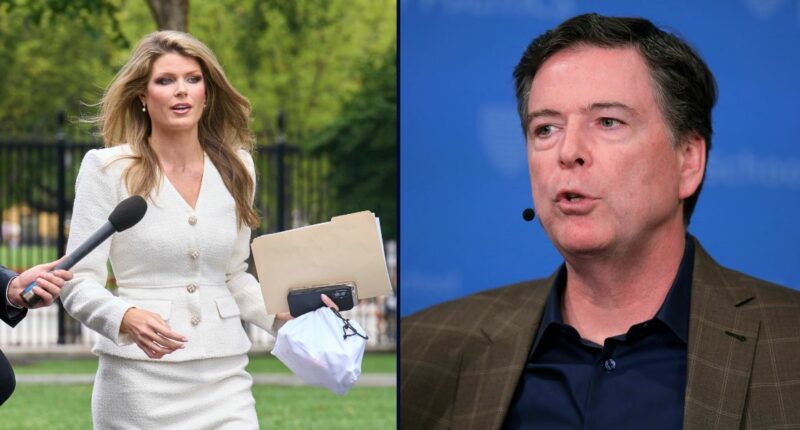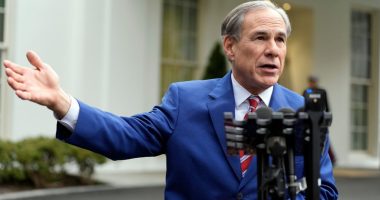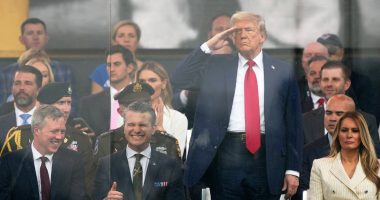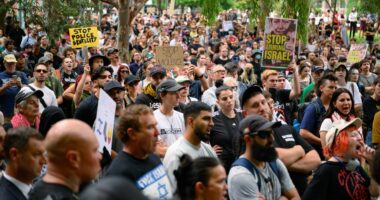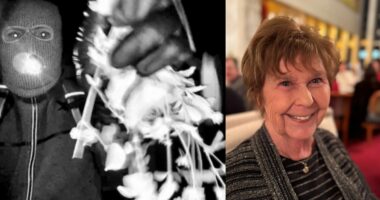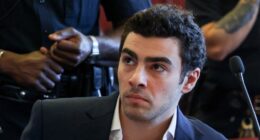Share this @internewscast.com
Left: Lindsey Halligan, special assistant to the president, speaks with a reporter outside of the White House, Wednesday, Aug. 20, 2025, in Washington. (AP Photo/Jacquelyn Martin). Right: Former Director of the Federal Bureau of Investigation James Comey gestures while addressing a gathering at Harvard University”s Institute of Politics’ JFK Jr. Forum in Cambridge, Mass., Monday, Feb. 24, 2020. (AP Photo/Charles Krupa).
Former FBI Director James Comey is pushing for the dismissal of charges against him, citing “potential misconduct” and “severe,” “pervasive,” and “abundant irregularities.” He claims these issues include the possibility that grand jurors felt compelled to indict him, providing grounds to end the obstruction and false statement case.
In a detailed 26-page motion, Comey criticizes the charges for misrepresenting his testimony and supports the release of grand jury proceedings.
Comey further argues that interim U.S. Attorney for the Eastern District of Virginia, Lindsey Halligan, who previously worked as an insurance lawyer with no prosecutorial background, was appointed upon the insistence of her former client, President Donald Trump. He claims she rushed the indictment after hours, securing only 14 votes following an earlier rejection, allegedly with the assistance of a potentially compromised FBI special agent who might have accessed attorney-client privileged information.
The filing insists, “Although grand jury proceedings are usually presumed to be regular, the numerous irregularities in this case challenge that assumption and justify the disclosure of the grand jury record,” to support the defense’s request for access to grand jury details. “These irregularities could provide a basis for dismissing the indictment.”
Reiterating claims of Halligan’s improper appointment, Comey argues that she achieved her desired indictment through an “unusual procedure,” including keeping the grand jury in session past regular hours as the five-year statute of limitations approached its end.
Comey points out that the grand jury initially rejected a three-count indictment. Instead of reconvening at a later date, Halligan managed to secure a two-count indictment by a narrow two-vote difference.
The defense suggested that if U.S. District Judge Michael Nachmanoff ordered the government to hand over grand jury details, those could reveal that Halligan sent a message that they couldn’t leave unless she got what she wanted.
“Undeterred by her initial failure, Ms. Halligan did not excuse the grand jury for the day. Instead, the grand jury remained at the courthouse into the evening hours to vote on a second indictment that was ultimately returned at 6:47 p.m.,” court documents continued. “That highly unusual decision could have sent the message that the grand jurors would not be permitted to leave unless and until they returned a true bill. And if Ms. Halligan used words to suggest that message, it would further support dismissing the indictment.”
Worse yet, the filing said, an FBI special agent and grand jury witness “may have been exposed to Mr. Comey’s privileged communications with his attorneys and thus may have conveyed that information to the grand jury.”
The filing did not explain exactly what that information was, leaving those details redacted, but added that it “apparently related to certain attorneys” for Comey, including law professor, Comey friend, and adviser Daniel Richman, and that the potentially “tainted case agent” testified the same day that the agent was “informed” of “privileged material.”
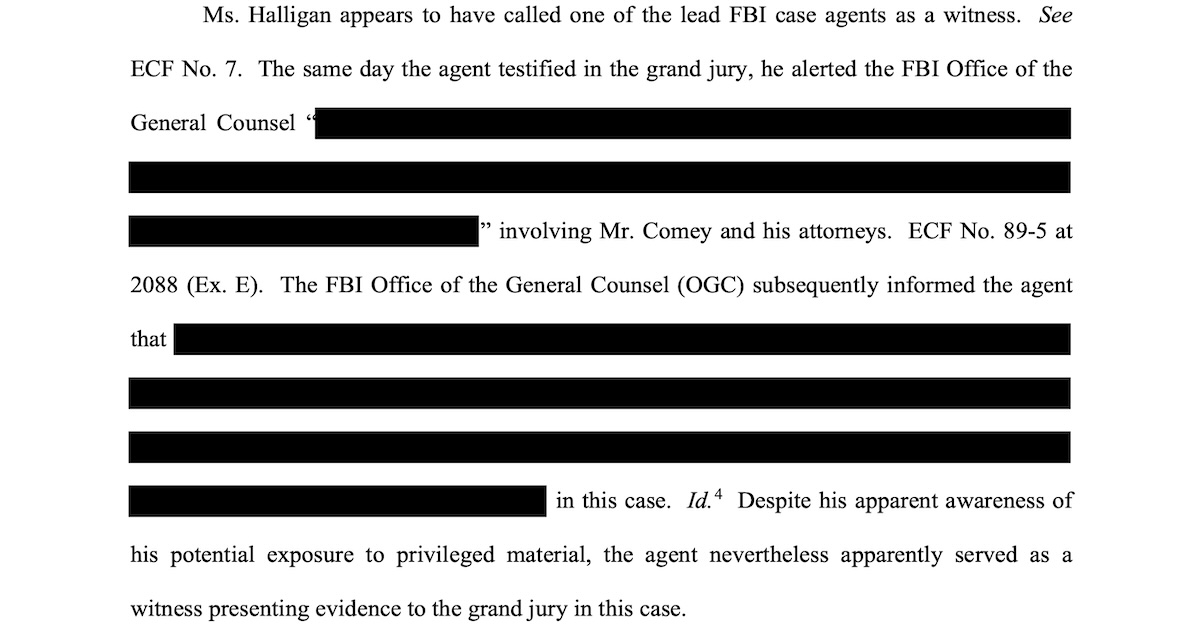
The portion of the Comey motion that redacted the allegedly privileged information an FBI special agent may have been privy to (court documents).
“Nevertheless, the agent testified before the grand jury that same day, and given the content of the resulting indictment, it is clear that his testimony must have referenced Mr. Comey’s interactions and communications with Mr. Richman,” the motion said. “This created a high risk that privileged information was presented to the grand jury by a tainted case agent.”
Taken together, Comey argued that the “irregularities” were “so severe and pervasive” that it’s doubtful the grand jury was “free from [improper] influence.”
The high-profile defendant separately filed a motion to dismiss because the Sept. 30, 2020, questioning conducted by Sen. Ted Cruz was “fundamentally ambiguous,” such that “people of ordinary intellect would not be expected to understand” what exactly the Texas Republican was asking Comey to answer and what exactly Comey allegedly lied about.
Recall that the indictment alleged Comey made materially false statement when he denied that he had “‘authorized someone else at the FBI to be an anonymous source in news reports’ regarding an FBI investigation concerning Person 1,” namely Hillary Clinton, because he “knew, he in fact had authorized PERSON 3,” Richman, “to serve as an anonymous source in news reports regarding an FBI investigation coneerning PERSON 1.”
The problem, Comey maintained, is that Cruz’s “imprecise compound questions” made it seem to the “reasonable person” that the senator was asking whether the ex-FBI director “specifically authorized” former FBI Deputy Director Andrew McCabe to “be an anonymous source in news reports,” not Richman.
Comey additionally filed a motion for a bill of particulars, so the government may be forced to tell him, in detail, “what he is charged with so that he may prepare a defense and avoid unfair surprises at trial.”
